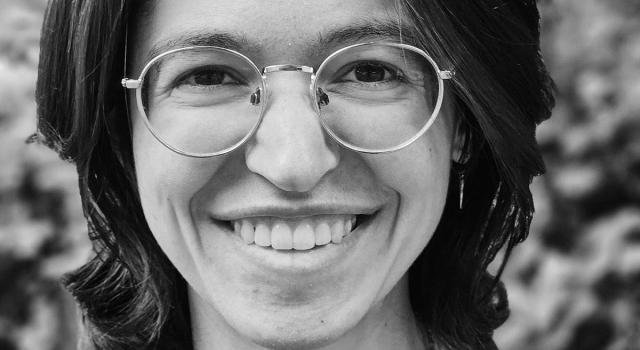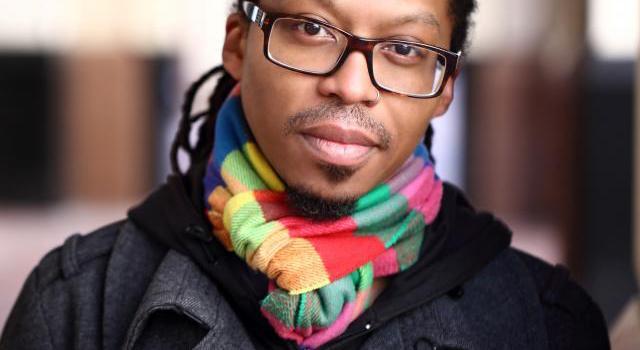Kimberly Chang's New Book Earns National Acclaim

Kimberly Chang, associate professor of cultural psychology in the School of Critical Social Inquiry, knows about the power of secrets.
Her recently published Accomplice to Memory (Kaya Press, 2017) originated in what Chang says was “a crisis of knowledge,” a secret from her father’s past that he revealed to her just before he succumbed to dementia. The revelation “pulled the rug out from under me,” Chang says. “I had to revisit everything I thought I knew about my family.”
Accomplice to Memory centers on what Chang calls a “father character,” based on her own father, who emigrated from China to the United States after surviving the decades-long turmoil of occupation by the Japanese, World War II, a civil war, and the Communist revolution.
Published under her Chinese name, Q. M. Zhang, Accomplice to Memory is a hybrid work that stands at the crossroads of fiction, memoir, history, and anthropology. It has garnered praise in, among other places, the Los Angeles Review of Books and The Massachusetts Review, which hailed Chang’s book as “impressive — in addition to being a writer, she is a professor of cultural psychology — yet the text never feels didactic. Indeed, the prose is beautiful throughout.”
For several years before learning her father’s secret, Chang had been compiling a comprehensive family history. She traveled back and forth to China to interview relatives but what she learned from them was insufficient to understand and represent him.
“I turned to creative writing. I couldn’t write about my father and his past as pure nonfiction because there were too many gaps to fill,” she says.
Left without concrete details, she created fictional but plausible versions of the missing pieces of his narrative. She differentiates between fiction and memoir by putting the former in italicized print. The book also incorporates scores of historical photographs of China that Chang found scouring archives, images that both add context and call into question the veracity of the stories told.
Chang acquired novelistic skills at the Juniper Summer Writing Institute, based at the University of Massachusetts, where she honed her writing over several summers, and studied under the late Grace Paley and other visiting writers.
“Writing Accomplice to Memory was like a Division III project,” she says. “I had to create a new form to tell the story. My students do this all the time. They present their research findings as plays, installations, or poetry. This kind of work gives students access to different kinds of truths — so I thought, ‘If they can do it, why can’t I?’”
Chang believes creative writing has a place in the School of Critical Social Inquiry, and she’s teaching to that idea. Several years ago, she developed the course “Crafting Truth: Research and Imaginings at the Borders of Non/Fiction.” The class merges rigorous methods of social-science research, such as interviewing techniques, with the study of innovative modes of creative writing — such as lyrical essay, documentary poetry, and ethnographic fiction — to “add depth to the anthropological study of people and cultures,” she says.
From her earliest days in academe, Chang sought out cross-curricular learning. After receiving her master’s degree in international relations from Syracuse University’s Maxwell School, known for its interdisciplinary approach to the social sciences, Chang entered the school’s Social and Political Psychology doctoral program. Her thesis was about the post-Tiananmen generation of Chinese college students living in the United States, many of whom were confronted with the difficult personal decision of whether to return to China. At that time, the first Bush administration had issued an executive order making it easier for Chinese students fearing persecution to get visas to the United States and remain here.
“I used the context of shifting U.S.–China relations to write about moral choice,” Chang says.
After teaching at the Hong Kong University of Science and Technology, from 1991 to 1999, a dynamic time of political change in the city at the tail end of British rule, Chang decided to return to the United States. Searching for a teaching job, one posting caught her eye.
“Hampshire was looking for a social psychologist with expertise in ethnography and anthropological kinds of research,” she says. “I saw that job description and I couldn’t believe it. That’s what I do.”
Chang came to Hampshire in 1999 and has spent much of her career researching and writing about migrant and diasporic people across the Pacific Rim. Her scholarship includes articles in the Journal of Contemporary Ethnography, the Journal of Moral Education, and the Women’s Studies International Forum.
As it turned out, her training in social-science research methods proved essential to creating Accomplice to Memory. She conducted scores of interviews and immersed herself in archives, searching for written documents and photographs, to capture the essence of her father’s youth in war-torn China.
“There were so many silences in my family, silences about what was left behind [in China] and silences about what my father had to do to maintain himself and survive here,” Chang says.
Ultimately, though, Chang’s book isn’t a meditation on the history of her father and his country, or on her relationship with him.
“It’s really about truth telling,” Chang says. “How can we use hybrid forms of writing to explore the gaps between what we think we know, what has been forgotten or erased, and what we have to imagine in order to get closer to truth?”



